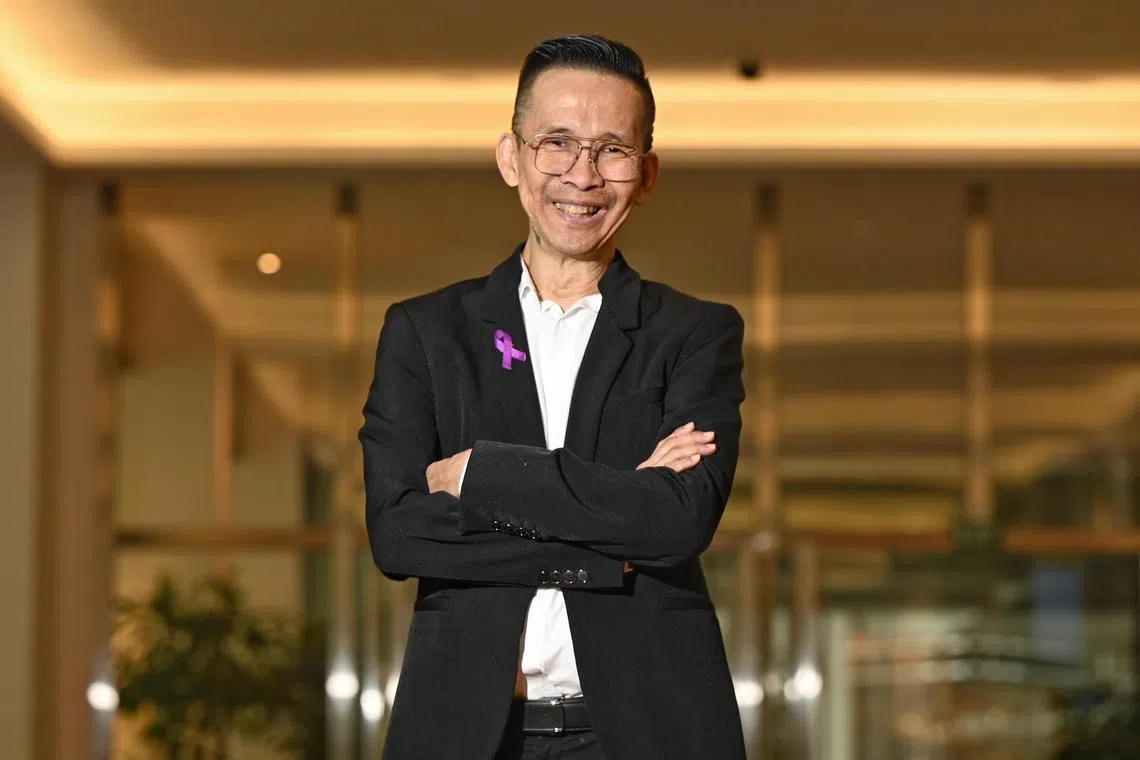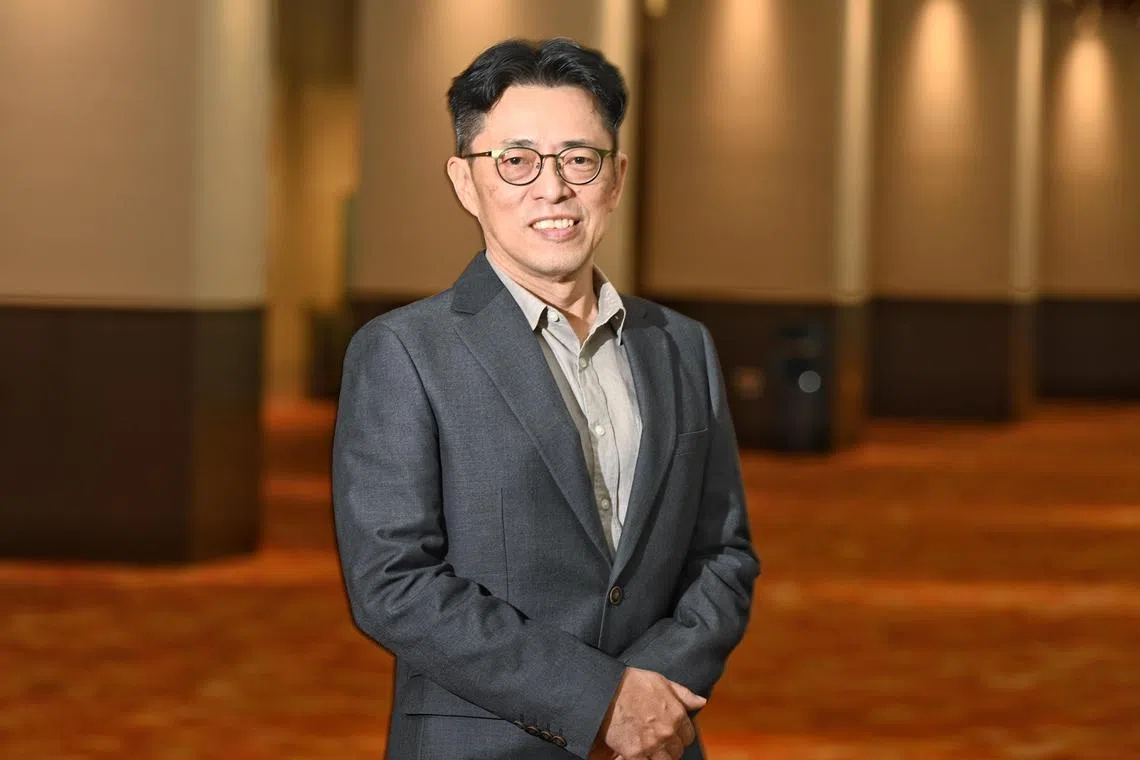Father with cerebral palsy among 13 recipients of Goh Chok Tong Enable Award
Sign up now: Get ST's newsletters delivered to your inbox

Mr Alan Pek, who has cerebral palsy, did not let his disability hinder him from being the assistant vice-president at Deutsche Bank and vice-president of HWA (formerly known as Handicaps Welfare Association).
ST PHOTO: DESMOND WEE
Follow topic:
SINGAPORE - Five months after he was born, Mr Alan Pek was abandoned by his biological parents and placed in a foster family.
His birth parents knew something was “wrong” with him, he said, but did not know how to handle him, and doctors at the time could not diagnose him.
As he grew up, he started having problems with mobility, coordination and speech, and people around him thought he had poliomyelitis (polio), a highly infectious viral disease that can cause paralysis.
It was only years later at the age of 22 that he was correctly diagnosed with cerebral palsy, a disability that has similar physical impairments.
Despite all this, Mr Pek, 60, did not let his disability stop him from becoming assistant vice-president at Deutsche Bank and vice-president of HWA (formerly known as Handicaps Welfare Association).
He was one of the awardees in the “achievement” category of the Goh Chok Tong Enable Awards, which recognises people with disabilities who have made significant achievements in their own fields.
The other category of “promise” encourages people with disabilities who have shown promise to pursue greater heights.
The sixth edition of the awards was held on Dec 3 on the International Day of People with Disabilities. The effort by the Goh Chok Tong Enable Fund, a community fund administered by SG Enable and supported by Mediacorp, honoured the achievements of 13 people with disabilities at Marina Bay Sands Singapore.
The event was attended by President Tharman Shanmugaratnam, who was guest of honour, Emeritus Senior Minister Goh Chok Tong, patron of the Goh Chok Tong Enable Fund, and Senior Parliamentary Secretary for Social and Family Development Eric Chua.
Mr Pek told The Straits Times: “(My biological parents) used to see me only once a year, every Chinese New Year. Do you know how it feels when your father comes to see you only once a year?”
This experience made him determined to be a good father to his two daughters, one of whom has an intellectual disability known as global developmental delay.
“I want to show my daughters what my father never showed me,” Mr Pek said, adding that he hopes to make a bigger impact with his award to be an advocate for people with disabilities.
He is one of the founders of dbEnable, a 10-week work placement programme by Deutsche Bank for students with disabilities.
He regularly provides mentorship and career guidance to students with disabilities and openly talks about his personal and professional journeys.
Another winner of the achievement award was Mr Andrew Tay, 58, who was born deaf and is the father of three hearing children.

Mr Andrew Tay is another winner of the achievement award.
ST PHOTO: DESMOND WEE
He is a Singapore Sign Language (SgSL) specialist with Equal Dreams, a local social business that champions inclusivity and accessibility for people with disabilities.
In 2008, he recorded a key milestone for the deaf community when he coined the term “Singapore Sign Language” which was later cemented as the official name for the local sign language.
Before that, the community was using Signing Exact English, an exact representation of English language vocabulary and grammar. SgSL, however, incorporates locally developed signs.
Mr Tay started advocating the use of local sign language rather than Signing Exact English after coming back from a Sign Linguistic workshop in Denmark in 1993.
“It was a jaw-dropping experience being in a space where there were many deaf professionals, all communicating in sign,” he said.
That experience with deaf professionals with different skills and knowledge inspired him. He felt that the deaf community environment in Singapore was stagnant in comparison, and started pushing for SgSL to be taught instead.
“However, the deaf community in Singapore was not ready for a change then,” he said. “A lot of them were not on board with naming our own sign language.”
He dropped the idea for a while.
But when he first started teaching his children sign language, he decided he should continue advocating that SgSL be recognised.
When it was finally recognised, he felt a sense of pride and identity with the deaf community.
“Before the term SgSL was coined, I was using a language prescribed to the deaf community through policy. With the recognition of our language, SgSL, I felt true representation of my identity within the deaf community.”
In a speech at the event, Mr Chua said public attitudes play a key role in disability inclusion efforts.
“We can do more to improve public attitudes towards persons with disabilities, especially at workplaces and towards those with less visible disabilities, such as intellectual disability and autism,” he said.
“We hope that more will join the ranks of our inclusive employers to support inclusive hiring and shift public mindsets to view persons with disabilities as individuals who have their own set of talents, skills and capabilities.”

